
It’s a tale of two interviews.
Currently, ABC’s Sally Sara is standing in for Patricia Karvelas as the host of the ABC TV Radio National Breakfast program. Who knows? Perhaps PK, as she likes to be called, is on what journalists tend to call a W.E.B. – AKA a Well Earned Break.
Many ABC programs have all but ignored the rise of anti-semitism in Australia following Hamas’ breach of the ceasefire agreement and barbarous attack on southern Israel on 7 October 2023. But the taxpayer funded public broadcaster has given widespread coverage to the strike by the Israel Defence Force on World Central Kitchen vehicles carrying aid workers in Gaza. This led to the tragic death of Australian Lalzawmi “Zomi” Frankcom, among others.
It is perhaps too early to learn precisely what took place on that fateful night. It is a sad fact that civilians and medical staff/aid workers are killed in conflict. It is not so long ago that three Israelis – who were hostages of Hamas – broke free only to be shot dead by IDF soldiers who mistook their identities in the fog of war.

On Thursday 4 April, Ms Sara interviewed Avi Hyman, a spokesperson for the Israeli government. Mr Hyman was interrupted constantly by an agitated Sara who did not appear to appreciate her interviewee’s replies. On occasion, she foreshadowed her interruptions with a loud – and somewhat unprofessional – “Hang on”. Sara seemed to be of the view that the IDF deliberately targeted the World Central Kitchen vehicles – but could not support her apparent feeling with evidence.
Then on Friday 5 April, Sally Sara interviewed Sir Alan Duncan, a former Conservative Party deputy foreign secretary. Sir Alan gave the impression that he is one of the well-off Brits who do not much like Israel. Moreover, he professed he is pro-Palestinian.
Needless to say, Ms Sara gave the British knight a soft interview. He ran the line that the current war did not start on 7 October 2023 – overlooking the fact that on that day Hamas broke a ceasefire when it invaded a part of Israel which has been so regarded since the creation of the State of Israel in 1948.
Duncan was allowed to say without challenge that the IDF had killed 33000 Palestinians. Without Sara mentioning that, even if this Hamas figure is correct, it does not take account of the fact that many of the dead were Hamas fighters.
Also, Sara did not challenge Duncan’s suggestion that Britain should discontinue sending arms to Israel. Despite the fact that any effective disarmament of Israel by the United States and/or Britain or any other significant arms supplier would delight the terrorists who run the Hamas dictatorship in Gaza, as well as the supreme leader in Iran.
The newly appointed ABC Chair, Kim Williams, has said that he wants ABC journalists to be impartial and fair-minded in their job. The tale of the Avi Hyman and Alan Duncan interviews indicates that Mr Williams faces a difficult role in attempting to reform the culture that pervades the Conservative Free Zone that is the ABC.

Will the ABC also censor Gavin Silbert KC’s critique of the Victorian legal system as being in a parlous state?
The lead column in The Australian on Friday 5 April was by Gavin Silbert KC – who is described as follows: Gavin Silbert KC has practised as a barrister for over 40 years in every jurisdiction and in all courts in the judicial hierarchy. Between 2008 and 2018 he was the chief prosecutor for Victoria.
Titled “Police findings erode public’s trust in state justice system”, Mr Silbert’s article commenced as follows:
The description of Victoria’s legal system as being in a parlous state by Catholic Archbishop of Sydney Anthony Fisher seems to be, regrettably, an accurate description by Australia’s leading Catholic cleric, who graduated in law from Sydney University and practised at Clayton Utz prior to taking holy orders. The description is based on the miscarriage of justice resulting in the conviction of the late Cardinal George Pell, which was only put right by the High Court of Australia after the cardinal had spent 13 months in prison.
It is difficult to imagine a more devastating criticism of the majority of the Victorian Court of Appeal than that delivered by a unanimous bench of the High Court when it granted special leave to appeal, set aside the appellant’s convictions and entered verdicts of acquittal stating there was a significant possibility that an innocent person had been convicted because the evidence did not establish guilt to the requisite standard of proof. In doing so, the court criticised the submissions of the Victorian Director of Public Prosecutions as specious.
As Media Watch Dog readers will recall, Dennis Shanahan broke the story of Archbishop Fisher’s comments re the Pell Case in The Australian on 12 January 2024. The ABC declined to report Archbishop Fisher’s statement delivered at St Mary’s Cathedral on 10 January 2024.
When Gerard Henderson took up the matter with the taxpayer funded public broadcaster, a senior ABC executive demeaned Shanahan’s story as a “so-called exclusive” and criticised Archbishop Fisher claiming that he had said that the Victoria Police was involved in a conspiracy with respect to Cardinal George Pell. In fact, Fisher did not use the word “conspiracy”.
In any event, the ABC’s refusal to regard as news a statement by the Catholic Archbishop of Sydney – declaring that the Victorian legal system is in a parlous state – was an act of censorship. Especially in view of the role played by leading ABC journalists in the media pile-on against Pell.
The word censorship also applies to the fact that not one ABC outlet has discussed the books written by Frank Brennan and Gerard Henderson following the High Court’s unanimous decision to acquit Cardinal Pell. Some ABC staff are embarrassed by the de-platforming of Brennan and Henderson in this instance – but not one has had the intellectual courage to say so in public.
And now Gavin Silbert KC (who is not a Catholic) has supported Archbishop Fisher’s view about the Victorian legal system and criticised the performance of Kerri Judd KC, the Victorian Director of Public Prosecutions with respect to the Pell Case and other matters.
Will the ABC report Mr Silbert’s devastating critique of the Victorian legal system in general and Ms Judd in particular? MWD’s advice is “Don’t hold your breath”- as the saying goes. The Australian Broadcasting Commission is becoming the Australian Broadcasting Censor.
CAN YOU BEAR IT?
● Nine’s Peter FitzSimons interviews ABC comedian Charlie (’a bit of canned laughter helps’) Pickering about, wait for it, Peter Dutton
It’s been over a year since the Sun-Herald in Sydney (aka the Sunday version of the Sydney Morning Herald) dropped its “Fitz” column from the back page. This was a wise media decision since sport is the place for the back page of newspapers rather than lightweight gossip. But it was bad news indeed for Media Watch Dog – since Peter FitzSimons’ “Fitz” column used to provide lotsa material for Ellie’s (male) co-owner. After all, who can forget that Sun-Herald photo of Fitz – one of Australia’s wealthiest socialists – clad in his red-bandana imitating a pirate of old at Hangover Time?
At times, when the sun was low and the Sun-Herald consumers were reading the front page near intersections, on seeing a red rag on a bald head on top of a white face on the Sun-Herald’s back page, motorists were wont to suddenly break – believing that this was a red traffic light. Many a front-bumper was damaged in the process – due to the light that shone from The Red Bandannaed One.
But MWD digresses. Now the Sun-Herald runs a “5 minutes with Fitz” segment on its middle pages. Believe it or not, there is no mention of the name “FitzSimons” – only references to “Fitz”, along with a pic of your man FitzSimons dressed in clerical black.
My Q & A interview with @charliepick
— Peter FitzSimons (@Peter_Fitz) March 30, 2024
I found him fascinating#auspol
How Charlie Pickering would "sell" Peter Dutton https://t.co/4A1GsQs6nC
On 31 March, the Sun-Herald ran Fitz’s interview with Charlie Pickering – who was presented as hosting “The Weekly, a satirical news show on the ABC”. Thanks for letting the hoi polloi know that “The Weekly” is “satirical”. Who would have realised this from viewing the program? For example, after some predictable put-downs of Donald J. Trump on Wednesday 3 April, “The Weekly” sought comments on something or other – was it drugs in sport? – from ABC faves Roy + HG – aka Roy Slaven (aka John Doyle) and HG Nelson (aka Greig Pickhaver). This duo has been doing this shtick for some four decades. Yawn.
Comrade Pickering is known to MWD as what a young comedian has described as a “non-funny comedian” much beloved by the ABC. In the words of the late Barry Humphries, Pickering identifies as a comedian.
In any event, Comrade Pickering was sans humour during his “5 minutes with Fitz” interview. So much so that an obviously bored sub-editor headed the piece “My advice to Dutton: ditch the Thatcher era of politics”. How come? Well, first up your man Pickering spoke about the subject he knows best. Namely himself. He reflected on his time at primary school and commencing work at a CBD Sydney legal firm but quitting after a week. How funny is that? There was more about Pickering’s time at Network 10’s The Project – which he quit after five years. Groan.
The Pick told The Fitz: “I had a skill set that really suited the show [The Project] and allowed the show to not know whether it was funny or serious – and I think that was when the show was at its best”. Sounds somewhat familiar. After all, does anyone know whether The Weekly is funny or serious? This was certainly the case with “The Weekly” on Wednesday 3 April – where the Pick’s “jokes” were supported by what seemed like loud and sustained canned laughter.
There was, however, one amusing moment. Comrade Pickering said this about the Conservative Free Zone that is the taxpayer funded broadcaster: “We just try to put facts in order, which is the discipline of the ABC generally.” There you have it – the ABC is all about facts. What a hoot.
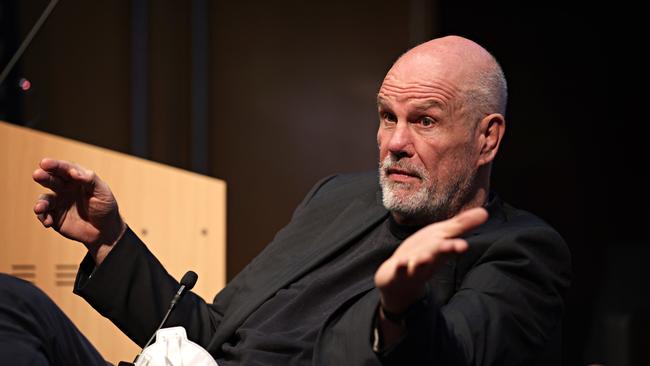
Then, having run out of anything else to talk about, Fitz asked your man Pickering about Australian national politics – to wit Opposition leader Peter Dutton.
Margaret Thatcher was prime minister of Britain between May 1979 and November 1990. In other words, she exited British politics some 35 years ago. Yet Pickering believes that the Opposition leader in Australia wants to take Australia back to Margaret Thatcher’s time in Britain – without supporting his assertion with any evidence whatsoever. Pickering also had this to say:
I would encourage Peter Dutton not to take the ultra-conservative brand of politics to the outer suburbs. I don’t think that’s Australia. John Howard never did that. John Howard was never ultra-conservative like that and never assumed the outer suburbs were like that. He had the gift of telling them they were the heartland of Australia, and giving them heartland policies, which were not ultra-conservative.
God forbid. Could this be a real Pickering joke? Here is Charlie – with Fitz’s encouragement – giving advice to the political conservative Peter Dutton and praising John Howard for not being ultra conservative.
Pray tell MWD – when did Comrade Pickering ever want to do political conservatives a favour? And when did he ever previously say anything positive about John Howard? And here’s another question – Can You Bear It?
The SMH’s Ross Gittins claims that he has given ‘free advice’ to every PM since Gough Whitlam
While on the topic of Nine Newspapers (i.e. The Age and Sydney Morning Herald in print format) – believe it or not, they were referred to in a dismissive manner by SMH’s economics editor in a speech published in Nine’s SMH on 9 March.
Here’s what happened. As avid Media Watch Dog readers are only too well aware, in recent times the Sydney Morning Herald went over-the-top when celebrating the fact that your man Gittins has been 50 years at the paper. There was a special edition on 7 February in which Gittins’ cult-of-personality prevailed over nearly ten pages supported by some score of photos/illustrations of the great man. There was more the following day when it was revealed that he would be speaking in praise of himself at a Sydney University function in the not-too-distant future.
And then, on 9 March, the SMH ran an edited version of the (somewhat dull) speech which Gittins gave at the Great Hall of Sydney University – which was staged in partnership with the University’s Faculty of Arts and Social Sciences. So far, MWD has not referred to this – having waited until Peak Gittins subsided somewhat in the SMH’s pages.
Sure, it was Gittins’ 50th Year at the Sydney Morning Herald. Well done Ross. But it’s also true that he has written much the same column every week for half a century. Poor fellow my reader – as Barry Humphries once said of Xavier Herbert’s Poor Fellow My Country’s 1,500 pages tome. Moreover, as far as MWD is concerned, Ross Gittins has not written a substantial economic or political book.
It turned out that Gittins told his audience that, when at the University of Newcastle, he had “a lot of trouble passing a subject called economics” which he “couldn’t make any sense of”. [Perhaps this explains why readers of Gittins’ SMH economics column have a lot of trouble making sense of it. Just a thought. – MWD Editor.]
In the event, Gittins’ lecturer at the University of Newcastle was “prevailed upon” to give him “a conceded pass” after he failed “a subject called international economics”. [Perhaps it was called “international economics” because it was, er, about international economics. How difficult is it to understand this? – MWD Editor.]
In the print version of the address, your man Gittins gave out lots of what he termed “free advice”. He related how at the SMH he is paid to give “free advice to everyone from the prime minister down”. This assumes that prime ministers since 1974 have been reading Ross. What an ego.
The second bit of “free advice” is that “universities should never be ashamed of their preoccupation with theory”. The SMH economics editor told listeners (if wide-awake listeners there were) that he writes “a lot about economic theory” in his columns. [Interesting. Perhaps that’s why I cannot understand his economic sludge. – MWD Editor.]
Comrade Gittins went on to give “free advice” to all Australian newspapers. Groan. In the process, he referred to Nine’s “envious competitors” (without naming them) whom he claimed like to dismiss Nine newspapers by referring to them as “the Nine newspapers”. But they are the Nine newspapers. With “free advice” like this, who would buy the SMH to read such confused “free advice” from Ross. Can You Bear It?
Crikey praises Gough Whitlam for something he did not do
It is Media Watch Dog’s duty to advise avid readers that Gerard Henderson has received two (not unfavourable) references in the Crikey newsletter – editor Sophie Black – in recent times. It is not clear whether this is a sign of good things to come – or otherwise.
However, it is MWD’s melancholy duty to correct a howler that Comrade Black and her editorial assistants missed. As avid readers know, Ellie’s (male) co-owner understands that we all make mistakes due to The Fall and all that and, consequently, is reluctant to dwell on what are “typos” of the written or verbal kind. Indeed, MWD has its own John-Laws-Style-Deliberate-Mistake segment to correct its own errors of this kind.
But there are limits. And this is one. On 28 March, Crikey ran an article by Isabelle Reinecke titled “Outgoing ministers can no longer keep their secrets buried”. Comrade Reinecke’s piece was about a recent Federal Court decision which, in her words, outlaws “the commonplace practice of denying FOI [Freedom of Information] access to ministerial documents simply because the responsible minister has left office”.
No problem here. However, in the article the following comment appeared about the Commonwealth Freedom of Information Act:
When Gough Whitlam and then Malcolm Fraser shepherded the FOI Act through Parliament in 1982, there was a bipartisan understanding that sharing information, where reasonable, and opening up decision-making on matters of high public importance, would make for stronger government and better societies.
Gough Whitlam was prime minister of Australia between December 1972 and November 1975. He retired from politics in July 1978. The Australian left is invariably praising the man they often simply call Gough. But, it’s a bit much for Crikey to praise Mr Whitlam for shepherding the FOI Act through parliament in 1982 when, at that time, he had not been prime minister for some six years and had not been an MP for some four years. Perhaps Crikey (proprietor Eric Beecher) should engage a fact-checker. Until then – Can You Bear It?
Erik Jensen’s The [Boring] Saturday Paper stumbles at its own disclosure hurdle
Could it be that The Saturday Paper (editor-in-chief Erik Jensen) is becoming less boring? Or perhaps more boring? You be the judge.
As avid readers know, The [Boring] Saturday Paper is based in Melbourne’s inner-city suburb of Collingwood. Sandalista Country in fact. It goes to print on Thursday evenings and arrives in inner-city coffee shops on Saturday mornings. As such, it is Australia’s only newspaper which contains no news. In view of this, Hendo reads it on Monday afternoon around Gin & Tonic Time. What’s the rush?
In an apparent attempt to make TSP less boring, the once weekly column by the boring John Hewson now appears fortnightly. Stan Grant, a refugee from the ABC, now writes every second week in place of Dr Hewson (for a doctor he is).
Then on Easter Thursday (to use an old-fashioned term) it was announced that two new political correspondents – Karen Barlow and Jason Koutsoukis – had joined The Saturday Paper. They will be based in Canberra – aka The Canberra Bubble. In the words of Comrade Jensen:
Karen and Jason are a powerhouse team. For decades they have been among the best reporters working in the press gallery. They are both tenacious news breakers, with a keen sense for where the real story is. Joining the bureau alongside columnist Paul Bongiorno, they will transform how The Saturday Paper covers federal politics.
Pretty impressive, eh? What Comrade Jensen did not point out is that Comrade Koutsoukis not so recently worked for Clare O’Neil, the Minister for Home Affairs in the Albanese Labor government. Now, there’s nothing wrong with having worked for Minister O’Neil. It’s just that The Saturday Paper is always banging on about full disclosure and all that stuff. Except, it seems, when it comes to The Saturday Paper itself. Can You Bear It?
FIVE PAWS AWARD
Media Watch Dog’s Five Paws Award was inaugurated in Issue Number 26 (4 September 2009) during the time of Nancy (2004-2017). The first winner was then ABC TV presenter Emma Alberici. Ms Alberici scored for remembering the Nazi-Soviet Pact of 23 August 1939 whereby Hitler and Stalin divided Eastern Europe between Germany and the Soviet Union. And for stating that the Nazi-Soviet Pact had effectively started the Second World War, since it was immediately followed by Germany’s invasion of western Poland (at a time when the Soviet Union had become an ally of Germany). Soon after, the USSR invaded eastern Poland in accordance with the protocols of the Nazi-Soviet Pact.
Over the years, the late Nancy’s Five Paws Award has become one of the world’s most prestigious gongs – rating just below the Nobel Prize and Academy Awards.
Historian Alex McDermott demolishes the myth that John Curtin was a great war-time leader
Thanks to the avid Media Watch Dog reader who drew attention to the article by historian Alex McDermott in the Australian Financial Review on 27 February. Headed “Keating’s strategic illusion died hard”, it commenced as follows:
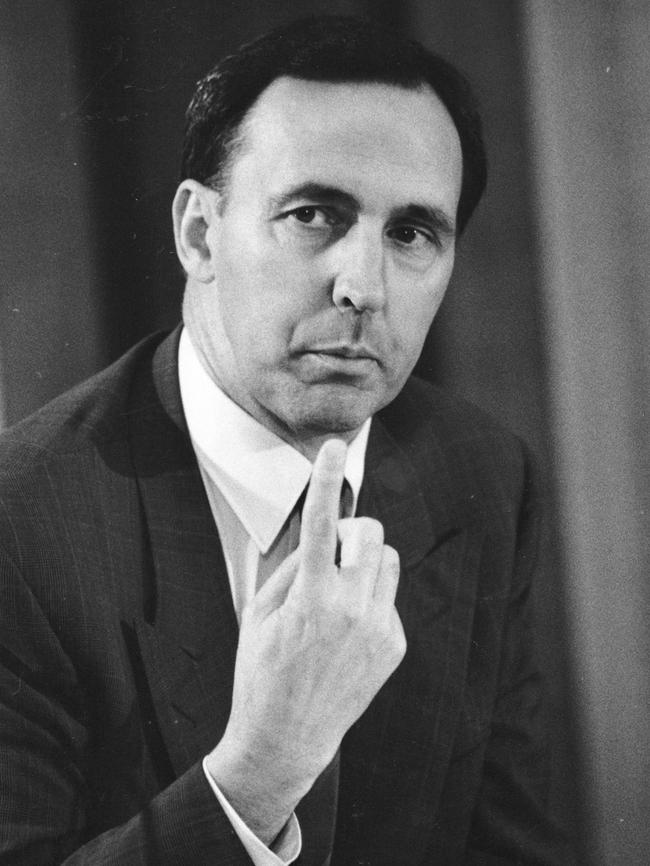
Paul Keating’s 80th birthday interview with The Australian Financial Review showed there is still a lot of life left in the now octogenarian former prime minister and treasurer. It also revealed that his strategic vision for modern Australia is myopically constrained by the Labor Party’s “defence of Australia” mythology. It’s almost as if he has been taken possession of by the ghost of John Curtin, and not in a good way. Keating’s proposals for how to protect the nation are a throwback to the 1930s isolationism that Labor’s wartime leader championed ….
It’s good to hear another challenge to the mythology that John Curtin (1885-1945) was a great war-time leader coming in a bit behind Britain’s Winston Churchill. He wasn’t. It’s just a left-of-centre myth perpetrated, among others, by such left-of-centre historians as David Day and John Edwards – and now endorsed by Paul Keating. As McDermott puts it:
When Curtin took over the Labor Party in 1935, the civilised world was menaced by totalitarian regimes from all sides, and lurching rapidly towards the abyss. But the ALP remained the same electoral basket case it had mostly been since its opposition to sending Australian conscripts to fight in Europe during World War I destroyed its credibility on national defence.
Let’s look at the political career of John Curtin (1885-1945) in three parts:
First World War: 1914-1918
John Curtin was a pacifist in the Great War and an implacable opponent of conscription for overseas service. His position can be summed up as follows: “The Kaiser’s Imperial Germany wants to conquer France and Russia? What to do? Well, I’m a pacifist so give the Kaiser what he wants.”
Labor came to government shortly after the First World War commenced, with Andrew Fisher as its leader. When the incumbent prime minister resigned to take up a diplomatic appointment in London he was replaced by Billy Hughes. Labor supported the war effort but was opposed to conscription for overseas service. Hughes saw the need to introduce conscription – and was expelled by the Labor Party. He continued as prime minister in what became the Nationalist Party.
Labor continued to oppose conscription that would have supported those who had voluntarily joined the First Australian Imperial force in joining Britain and other Commonwealth nations – plus France and the United States (after November 1917) – in opposing the aggression of Imperial Germany and its allies. Despite the fact that Germany was a Pacific power at the time and a victory for Germany circa 1918 would have adversely affected Australia. In the early 20th Century Labor held the view that the defence of Australia commenced at Australia’s borders.
Appeasement in the 1930s
John Curtin entered Federal politics in 1928 and became leader of the Labor Party in opposition on 1 October 1935. At the time, Joseph Lyons was prime minister of the United Australia Party government. Lyons died in office on 7 April 1939 and was succeeded by Robert Menzies.
Paul Keating likes to condemn Lyons and Menzies as appeasers of Adolf Hitler and Nazi Germany in the 1930s. Both were into appeasement – as were most leading politicians (including Labor MPs like Curtin) with the exception of Billy Hughes. But the fact is that – as McDermott argues – Curtin opposed every attempt by the UAP government under Lyons and Menzies to increase Australia’s defence expenditure – in the lead-up to what became the Second World War. Also, Curtin did not act quickly to increase defence expenditure when he became prime minister in October 1941. At the time Britain was overextended in Western Europe and the United States was neutral.
Those who have read John Edwards’ John Curtin’s War: Volume 1 know that Curtin was an appeaser who did not want to increase spending on defence and who, before Pearl Harbour, approached Japan with a view to Australia reaching a special peace deal with Japan in the event of hostilities. John Edwards is a member of the Curtin cheer squad – but his book demonstrates that Curtin was not a supporter of increasing defence spending in the late 1930s and early 1940s. All this is documented in the “History Corner” segment of MWD on 20 April 2018.
Researching her book Menzies at War (New¬South, 2014), Anne Henderson came across a document in an unpublished manuscript written by Frederick Shedden.
Shedden was secretary of the Department of Defence during the war. Curtin once told Shedden that he (Shedden) was his “right and left hand and head too”. In his unpublished manuscript, Shedden wrote that Curtin’s wartime planning could not have been “immediately effective but for the foundations laid by the defence programs of the preceding” UAP governments headed by Lyons and Menzies. According to Shedden, “Curtin generously acknowledged the inheritance he had received” from Lyons and Menzies. However, as pointed out above, Curtin and Labor opposed the rearmament presided over by Lyons and Menzies.
Second World War
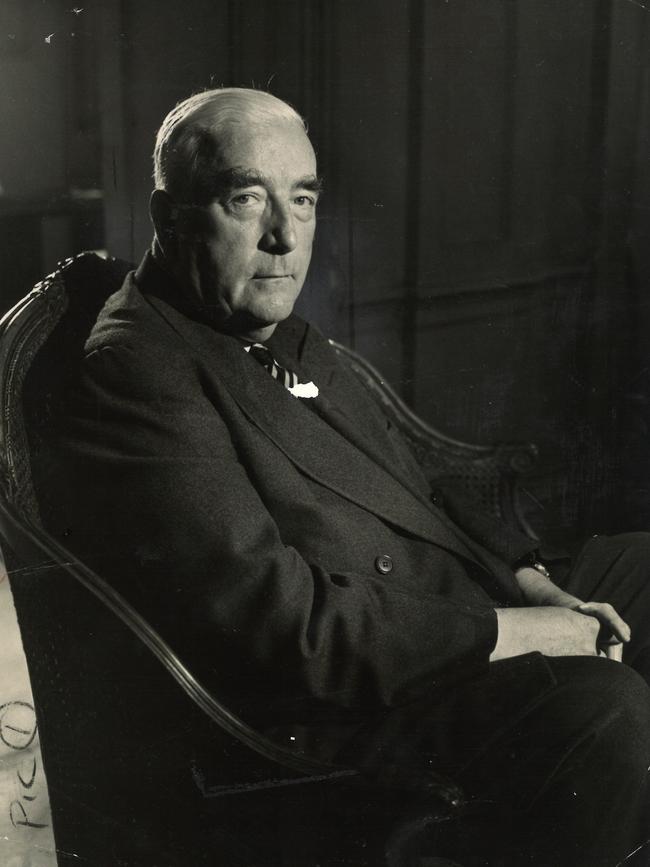
Robert Menzies, the United Australia Party prime minister, declared war against Germany on 3 September 1939 – following the decision of Britain’s prime minister Neville Chamberlain to declare war on Germany consequent upon its invasion of Poland. In 1940, the Menzies government committed the Second Australian Imperial Force to the war against Hitler’s Germany and Mussolini’s Italy. Labor, under Curtin’s leadership, while supporting the war effort in general, did not support the commitment of the Australian Army to Europe and the Middle East. At this time Britain virtually stood alone – except for the Commonwealth nations. France was defeated, the United States was neutral and the Soviet Union was an ally of Nazi Germany.
After Japan’s attack on the US at Pearl Harbor in December 1941 – after which Germany declared war on the US – the Curtin government brought Australian military forces back from the Northern Hemisphere. Australians fought courageously with American forces in the Pacific Theatre – but it was a contribution limited by the timidity of the Curtin government. As Alex McDermott commented:
In 1941 Curtin led the ALP into a minority government just as Japan’s downward thrust through South-East Asia meant that World War II became a matter of directly defending a besieged homeland – the only warfare Labor was comfortable with. Luckily for Curtin, the Lyons and Menzies governments had aggressively ramped up defence preparedness – despite stinging criticism from Labor.
Even so, it was apparent that the “Battle for Australia” could only be won thanks to a new, great and powerful friend. After the fall of Singapore, Britain didn’t seem up to the task. But for America, Australia served as the base to launch a counter-offensive. The Americans weren’t impressed, however, when the Curtin government refused to compel Australian conscripts to be sent overseas as part of this campaign – again, the isolationist fantasy was too strong. Instead, American conscripts did much of the heavy lifting in the Battle for Australia. Curtin died in the final months of the war …. To the end Curtin remained strategically insular, verging on myopic, unwilling to grasp the global strategy demands that the US and UK were grappling with to win a world war. His preference was to crouch all Australian forces behind an American security umbrella, and refuse or avoid genuine engagement in the real battle theatres.
Certainly, Curtin managed to get through the Labor Party a limited form of conscription for overseas service in a designated part of the southwest Pacific. But it was very limited and sent out the message that Australia would not play a key role in the final years of the Pacific War.
Indeed, Prime Minister Curtin effectively handed control of the Australian Defence Force to General Douglas MacArthur who commanded the United States’ South West Pacific Theatre in World War II.
* * * * *
In Australian terminology, John Curtin was a good bloke. However, he was only prime minister between August 1941 and July 1945 – and, during that time, he was not a good war-time leader.
Alex McDermott – Five Paws.
GREAT MEDIA U-TURNS OF OUR TIME
Nine’s David Crowe’s flip-flops on the Albanese government’s immigration detention legislation
Due to enormous demand, the hugely popular “Great Media U-Turns of Our Time” segment returns this week. Lotsa thanks to the avid reader who drew attention to this U-turn by Media Watch Dog fave David Crowe. You know, Nine’s chief political correspondent who got the 2019 election and the 2023 referendum results hopelessly wrong – but continues to provide The Age and Sydney Morning Herald with his, er, political expertise.
In his regular Wednesday slot on ABC Radio National Breakfast, Comrade Crowe had this to say to presenter Patricia Karvelas. The date was 27 March and he spoke about the Albanese government’s proposed immigration detention laws:
David Crowe: I think it will be passed today because I think this is a situation where the government wants it through and I think the Coalition will end up, I think, supporting it. Because it’s the Coalition that has been accusing Labor of being weak on detention immigration and so forth. And I think that really tests all of that rhetoric in order to get a new bill through.
Quelle Surprise! As it turned out, this was another false prediction by your man Crowe. Not long after Crowe’s prophecy, the Coalition joined the Greens and miscellaneous Independents in the Senate in sending the legislation to a Senate committee. Whereupon, Crowe had this to say on the Thursday before Easter in his Age and SMH column:
Labor deserved to lose its inflammatory attempt to ram a new law through parliament so it could look tough on borders by turning asylum seekers into criminals. The [Labor] party dared the Senate to back its draft law and lost. It looked utterly isolated when everyone else in the Senate joined forces to send the bill to an inquiry rather than submit to the government’s arrogant move to put a sudden deadline on the vote …. Anthony Albanese ran the risk of this defeat as soon as he and cabinet chose to flout the usual approach to new law.
So, there you have it. On the Wednesday before Easter, the political correspondent of Nine’s newspapers predicted that the Albanese government would get the legislation through the Senate that very day. He made no criticism of its rush to legislation or the content of the legislation.
However, when the Coalition did not do what Crowe had predicted it would do, your man Crowe condemned the legislation as “an inflammatory attempt to ram a new law through parliament” and gave the impression that he knew in advance that it had no chance of passing.
Verily, A Great Media U-Turn of Our Time.
AN ABC UPDATE
The ABC’s Dan Bourchier once again uses the ABC to condemn (alleged) racism at the abc
Ever noticed how ABC types talk so frequently about the ABC on the ABC? Well, if so, it will come as no surprise to learn that the ABC’s Dan Bourchier, who identifies as Indigenous, had this to say when asked for his “Final Comments/Observations” on the ABC TV Insiders program on 17 March. Let’s go to the transcript:
David Speers: Let’s get some final observations. Dan.
Dan Bourchier: David, last year there was a lot of discussion about racism at the ABC. The independent review into ABC systems and processes in support of staff who experience racism is underway. Independent, de-identified, going to be publicly released, led by Indigenous leader Dr Terri Janke. She’s calling for people to contribute – you can do so on our website. This was called for by Indigenous [ABC] staff – and the time has been taken to get the cultural protocols right. So, this is a pretty big deal.
DS: Ok.
In fact, much of the discussion in 2023 about the alleged racism at the ABC was kicked-off by Comrade Bourchier himself. On 29 May 2023, he used his role as an Insiders panellist to berate the taxpayer funded public broadcaster for alleged racism. When Bourchier hinted that he was talking about racism at the ABC, the following exchange took place:
David Speers: [interjecting] You’re talking about racism?
Dan Bourchier: Yeah, yeah.
DS: In the [ABC] organisation?
DB: Well, yeah. When I come on this program and am dismissed as your “diversity pick” or your “box ticker”. You know, that comes from within our organisation. And then that sends a message that that type of language is normal. And it’s not. It’s unacceptable.
DS: It is unacceptable. And it’s not why you’re here [laughing] for the record. We love your [inaudible].
So, on Sunday 29 May 2023, Bourchier implied that, due to the racism at the ABC, he was reluctant to appear on Insiders. However, he has been on the program on numerous occasions since then.
On 17 March 2024, Comrade Bourchier used Insiders on the ABC to urge viewers to contribute to the report on racism at the ABC. So far, the only evidence that your man Bourchier has presented about alleged racism at the ABC appears to turn on the claim that some of his colleagues have suggested that he only appears on Insiders because he is Indigenous. The professional way to handle such an issue would be to report any such instance to ABC management and name names in private.
But Dan Bourchier has taken the option of using his role at the ABC to effectively claim that the ABC is riddled with racism – thus throwing the broad racism tag over all his colleagues – and urging others to support his claim.
THE AUSTRALIA INSTITUTE/ABC ENTENTE
Comrade Ebony Bennett’s anti-Albanese government rant gets an ‘indeed’ from Michael Rowland
As avid Media Watch Dog readers are aware, the taxpayer funded public broadcaster has close relationships with such avowedly leftist outlets as The Guardian Australia and The Australia Institute. Representatives from these organisations appear regularly on such programs as ABC TV News Breakfast and ABC Radio National Breakfast.
There are no such cosy arrangements between the ABC and such right-of-centre entities as the Centre for Independent Studies, the Menzies Research Centre, the Institute of Public Affairs and the Robert Menzies Institute. All members of this politically conservative quartet have been deplatformed by the ABC.
On Maundy Thursday (28 March), Ebony Bennett, deputy director of The Australia Institute, appeared on News Breakfast’s “Newspapers” segment. Michael Rowland and Lisa Millar were the co-presenters.
As is her wont, Comrade Bennett focused not on what was in the newspapers for that day. But, rather, on what should have been in them. For example, here is the Bennett rant on Australia’s environment laws:
Lisa Millar: Hey, let’s start with The West Australian, what have they got?
Ebony Bennett: The West Australian is reporting that, uh, the [Albanese] government is about to do a bit of a “go slow” on reforms to our national environmental laws, widely recognised to be not fit-for-purpose anymore. The government is considering a number of reforms and, uh, WA here is reporting that mining and business groups have emerged from a closed-door meeting with the understanding that the government is going to go slow on this package of reforms and potentially might split bills – a bill into many bills. Or, um, break this down into chunks of reform.
Uh, and I guess very concerning because, as I said, widely understood that these laws are no longer fit for purpose. And without things like Climate Trigger, which probably will be opposed by mining groups, for example, uh, you know, the government’s really going to struggle to protect Australia’s habitats and native species, uh, and, you know, keep approving fossil fuel projects.
MR: Indeed. … Hey, let’s turn to the Financial Review.
Indeed. Comrade Bennett bagged what she maintained is the Albanese government’s proposed national environment reforms – from a Green/Left perspective. And Comrade Rowland went along with the (ideological) ride. No other view was heard.
The Australia Institute-ABC Entente in action.


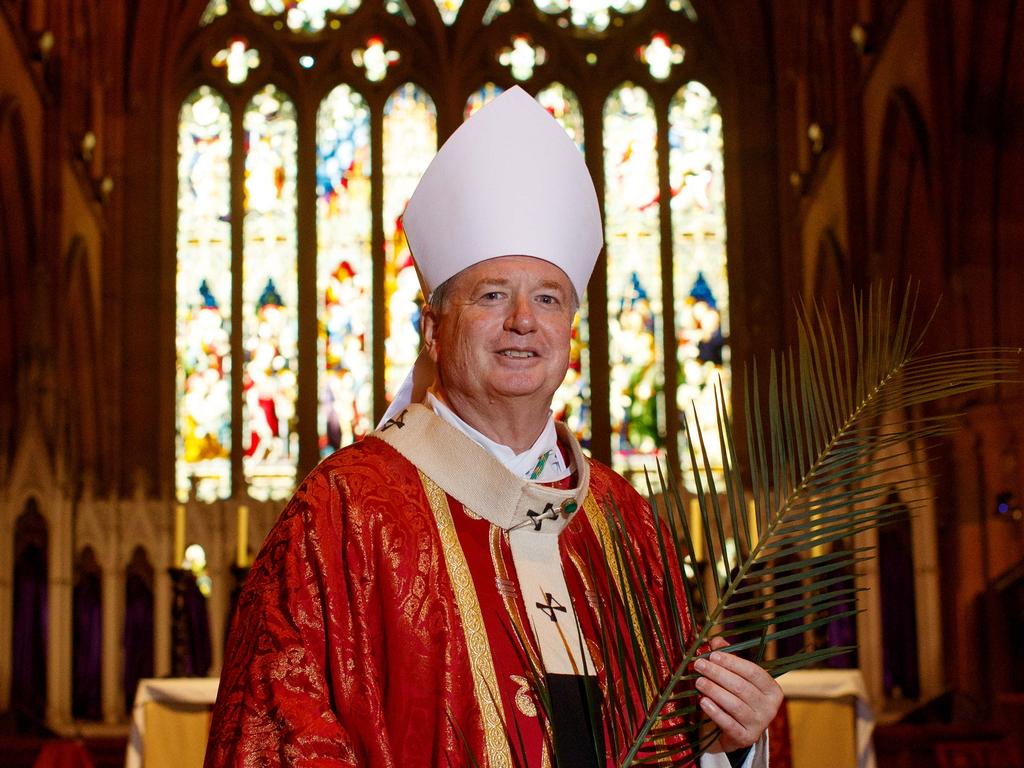

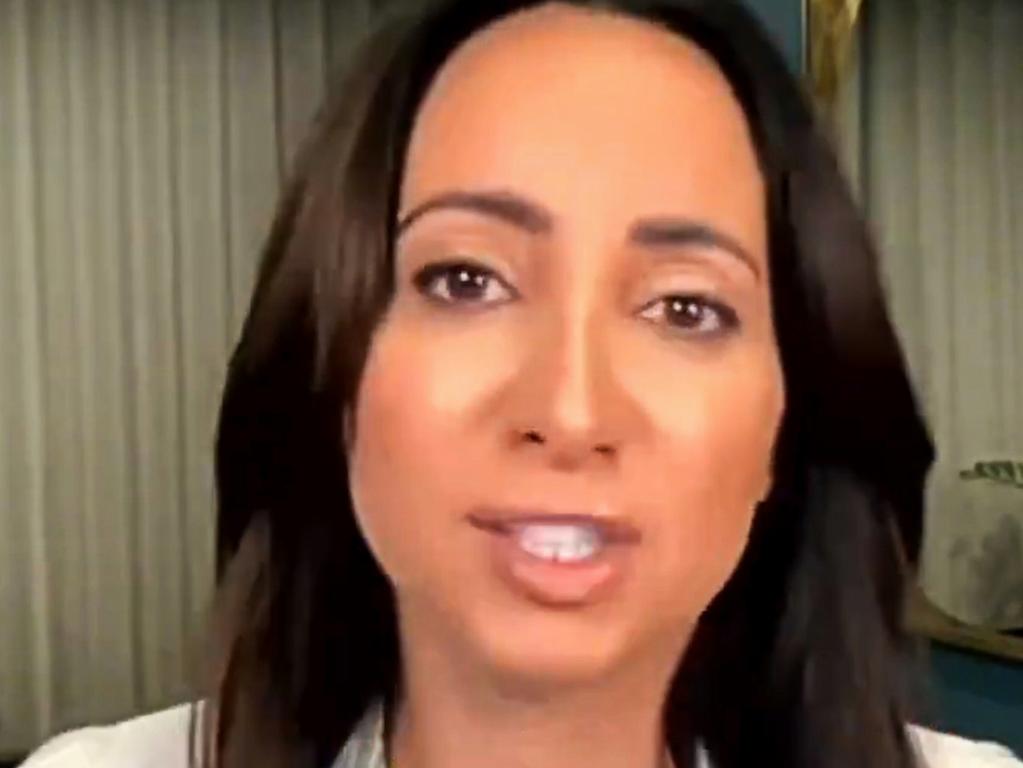

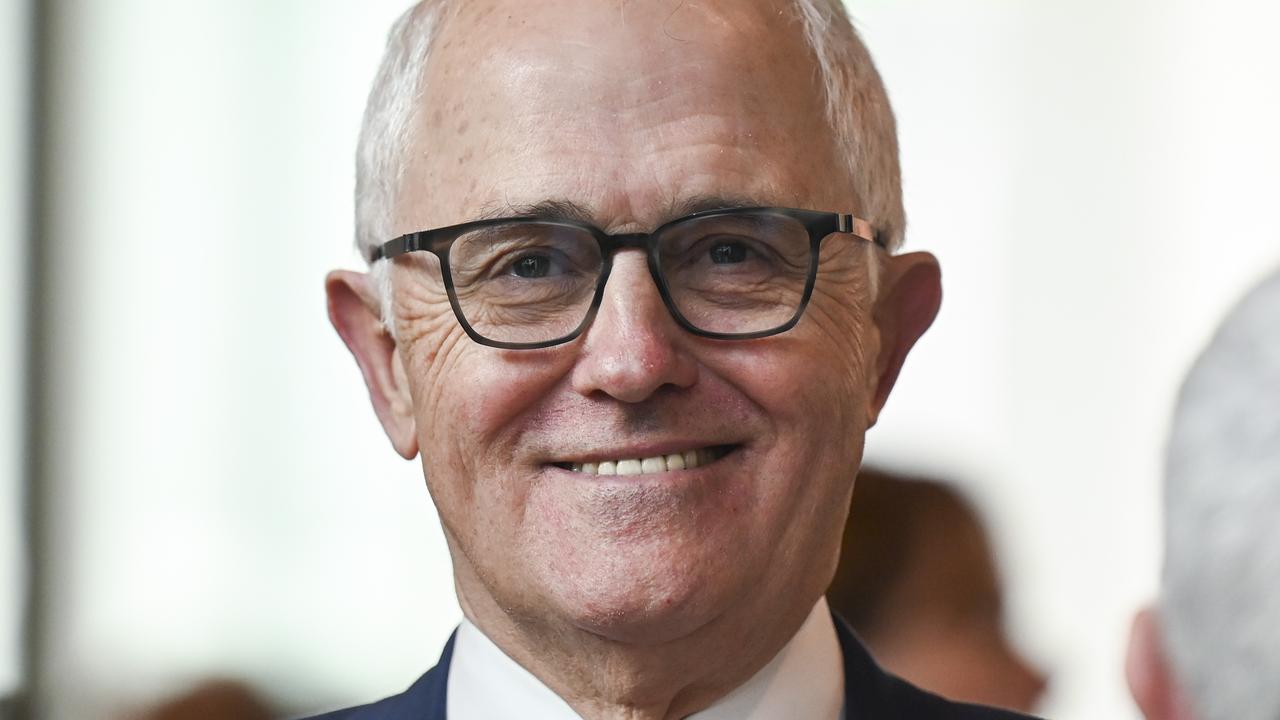

It’s a tale of two interviews.